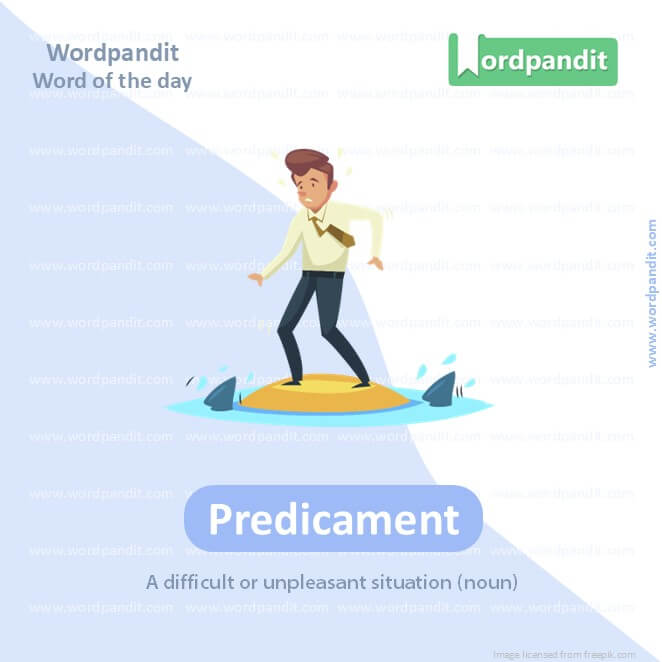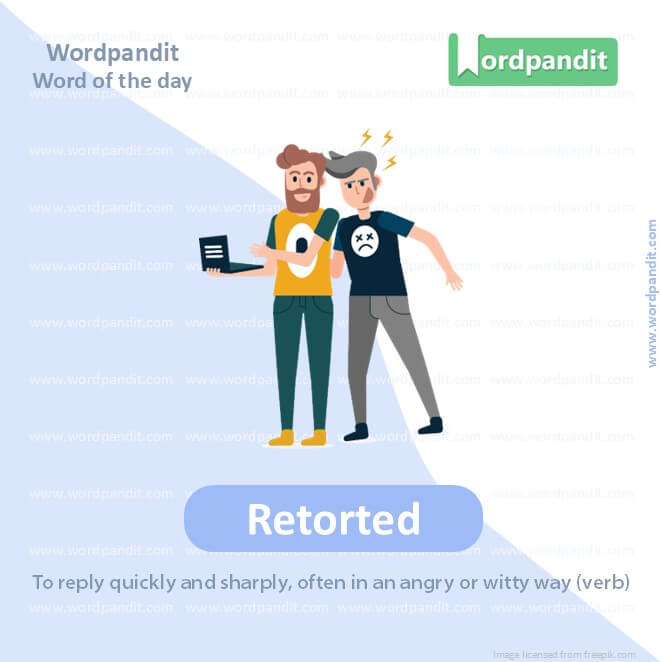Daily Vocabulary Words: Enhance Your Lexicon with Leading Newspapers & Publications
Welcome to the Daily Vocabulary section at Wordpandit!
Our mission is straightforward: to bring you essential vocabulary words featured in top newspapers and publications worldwide. By focusing on words you’ll encounter in renowned sources, we aim to help you enhance your vocabulary effectively and practically.
Our selection includes words from:
– The New York Times
– The Washington Post
– Scientific American
– BBC
– The Guardian
– Psychology Today
– Wall Street Journal
– The Economist
– The Hindu
– The Times of India
– The Economic Times
– Hindustan Times
– Live Mint
– The Indian Express
– And many more.
We are committed to your vocabulary development. Simply visit this section regularly and explore the daily posts. This is your go-to repository for commonly used words, providing significant practical benefits by familiarizing you with vocabulary from the leading publications listed above.
Make it a habit to visit our website daily and expand your lexicon with words from top newspapers and publications.

WORD-1: Impetus
CONTEXT: The way to do that is to go along with this impetus for a ban.
SOURCE: The Hindu
EXPLANATORY PARAGRAPH: Imagine you want to build a tower with blocks, but you need a little push to start. That push, or something that makes you want to start or keep going, is called an “impetus.” It’s like a reason or energy that helps you move forward with your plans or actions.
MEANING: The force or energy that makes something happen or move forward (noun).
PRONUNCIATION: IM-pi-tuhs
SYNONYMS: motivation, stimulus, encouragement, push, drive, boost
USAGE EXAMPLES:
1. The teacher’s praise gave him the impetus to study harder.
2. The new project provided the company with fresh impetus to expand.
3. Her friend’s advice was the impetus she needed to start painting again.
4. A strong impetus can help you achieve your goals.

WORD-2: Predicament
CONTEXT: More recently, I was in a unique predicament when some schoolchildren who had come to celebrate Rakhi at the Rashtrapati Bhavan asked me innocently if they could be assured that there would be no recurrence of the Nirbhaya-type incident in future.
SOURCE: The Hindu
EXPLANATORY PARAGRAPH: Imagine getting your toy stuck on a high shelf where you can’t reach it, and you don’t know what to do. That tricky situation is called a “predicament.” It’s when you’re in a spot that’s hard to get out of.
MEANING: A difficult or unpleasant situation (noun).
PRONUNCIATION: pri-DIK-uh-muhnt
SYNONYMS: dilemma, difficulty, problem, quandary, pickle
USAGE EXAMPLES:
1. She found herself in a predicament when she lost her keys.
2. The boy was in a predicament when he couldn’t decide which toy to buy.
3. The team faced a predicament when their best player got injured.
4. He was in a real predicament, not knowing how to fix the mistake.

WORD-3: Leveraging
CONTEXT: By leveraging these strategies, Axiom Space aims to mitigate risks and ensure the success of our missions.
SOURCE: Times of India
EXPLANATORY PARAGRAPH: Imagine you have a toy that helps you lift something heavy. By using that toy, you’re making your work easier. “Leveraging” means using something you already have, like a tool or a skill, to make a situation better or easier.
MEANING: Using something to maximum advantage, especially to gain a benefit (verb).
PRONUNCIATION: LEV-er-ij-ing
SYNONYMS: utilizing, exploiting, making use of, capitalizing on, taking advantage of
USAGE EXAMPLES:
1. She is leveraging her experience to start her own business.
2. The company is leveraging new technology to improve customer service.
3. He was able to succeed by leveraging his connections in the industry.
4. Leveraging your strengths can help you overcome challenges.

WORD-4: Feisty
CONTEXT: He had lost the debate with the feisty Democrat.
SOURCE: The Hindu
EXPLANATORY PARAGRAPH: Imagine a small puppy that’s always jumping around, full of energy, and not afraid to bark, even at bigger dogs. That puppy is “feisty.” It means someone or something is lively, brave, and full of spirit, even if they’re small.
MEANING: Full of energy and courage, often with a fiery or determined attitude (adjective).
PRONUNCIATION: FYE-stee
SYNONYMS: spirited, energetic, spunky, bold, lively, plucky
USAGE EXAMPLES:
1. The little girl was feisty and never backed down from a challenge.
2. Despite his size, the dog had a feisty attitude.
3. She gave a feisty response when questioned about her ideas.
4. His feisty personality made him stand out in the competition.
WORD-5: Gaffe
CONTEXT: Ironically, it was a gaffe he made about the Cold War that did him in.
SOURCE: The Hindu
EXPLANATORY PARAGRAPH: Imagine if you accidentally said something silly or did something by mistake in front of a group of people. That mistake is called a “gaffe.” It’s when someone does or says something that they didn’t mean to and it feels awkward or embarrassing.
MEANING: A mistake or blunder, especially one that causes embarrassment (noun).
PRONUNCIATION: gaf
SYNONYMS: blunder, mistake, slip-up, error, misstep, faux pas
USAGE EXAMPLES:
1. The politician’s gaffe during the speech made everyone laugh.
2. She apologized for the gaffe she made in the meeting.
3. His gaffe at the dinner party was soon forgotten.
4. A simple gaffe can sometimes lead to funny situations.

WORD-6: Retorted
CONTEXT: Obama, always quick on his feet, retorted cuttingly.
SOURCE: The Hindu
EXPLANATORY PARAGRAPH: If someone says something to you, and you quickly answer back with a sharp or clever reply, you’ve just “retorted.” It’s when someone responds quickly, often to defend themselves or make a point.
MEANING: To reply quickly and sharply, often in an angry or witty way (verb).
PRONUNCIATION: ri-TORT-ed
SYNONYMS: replied, responded, answered, countered, snapped, rebuffed
USAGE EXAMPLES:
1. “I don’t care!” she retorted angrily.
2. He retorted with a clever comeback during the argument.
3. When teased, he quickly retorted with a witty remark.
4. She retorted, “That’s not true!” when accused of being late.
WORD-7: Resilience
CONTEXT: We celebrate not just their survival but the resilience and dedication of all involved in these efforts.
SOURCE: Times of India
EXPLANATORY PARAGRAPH: Imagine a ball that you can squish, but it bounces right back into shape. That’s what “resilience” is like. It’s the ability to come back strong after something hard or tough happens.
MEANING: The ability to recover quickly from difficulties or challenges (noun).
PRONUNCIATION: ri-ZIL-yuhns
SYNONYMS: toughness, strength, endurance, determination, grit, adaptability
USAGE EXAMPLES:
1. After losing the game, the team showed great resilience by winning the next one.
2. Her resilience helped her overcome all the challenges she faced.
3. The resilience of the plant allowed it to survive the harsh winter.
4. People admired his resilience after he recovered from the accident.
WORD-8: Menacingly
CONTEXT: Trump left the podium and advanced menacingly towards Hillary while she was speaking.
SOURCE: The Hindu
EXPLANATORY PARAGRAPH: Imagine if someone was holding a toy dinosaur and made it growl while moving it closer to you in a scary way. They’re doing it “menacingly.” This word means doing something in a way that seems dangerous or scary.
MEANING: In a threatening or dangerous manner (adverb).
PRONUNCIATION: MEN-uh-sing-lee
SYNONYMS: threateningly, dangerously, intimidatingly, ominously, aggressively, frighteningly
USAGE EXAMPLES:
1. The dog growled menacingly at the stranger.
2. He stared menacingly at the people across the room.
3. Dark clouds gathered menacingly in the sky before the storm.
4. The villain laughed menacingly in the movie.
WORD-9: Incoherently
CONTEXT: Biden “repeatedly lost his train of thought, stared blankly and spoke incoherently and with a raspy voice at times.”
SOURCE: The Hindu
EXPLANATORY PARAGRAPH: Imagine someone trying to explain something to you, but they’re talking really fast and in a way that’s hard to understand. That’s called speaking “incoherently.” It means talking in a confusing way that doesn’t make much sense.
MEANING: In a way that is unclear or difficult to understand (adverb).
PRONUNCIATION: in-ko-HEER-ent-lee
SYNONYMS: unclearly, confusingly, illogically, jumbled, muddled, unintelligibly
USAGE EXAMPLES:
1. He mumbled incoherently after waking up from the nap.
2. The speaker spoke so fast that it became incoherent.
3. She tried to explain what happened, but her words were incoherent.
4. The instructions were written so incoherently that no one understood them.
WORD-10: Lynched
CONTEXT: In a country where people regularly get lynched on the merest suspicion of possessing beef.
SOURCE: Times of India
EXPLANATORY PARAGRAPH: Imagine if people were really angry and decided to hurt someone without letting the police or anyone else do anything. “Lynched” means hurting or killing someone in a very unfair and illegal way, especially by a large group of people.
MEANING: To kill someone, especially by hanging, without a legal trial, usually by a mob (verb).
PRONUNCIATION: lincht
SYNONYMS: hanged, executed, murdered, slaughtered, killed, assassinated
USAGE EXAMPLES:
1. The man was lynched by an angry mob before a trial could be held.
2. The story of people being lynched in the past is very sad.
3. They feared he would be lynched if they didn’t get him out of town.
4. History books describe how innocent people were lynched unfairly.













